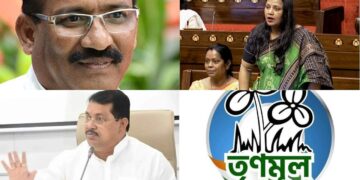“History will be kinder to me…” These were the words of Dr. Manmohan Singh which he made while signing off the Prime Minister of India in 2014, following his 2nd tenure in the highest position of the nation marred by controversies and challenges.
Dr. Manmohan Singh, the former Prime Minister credited with opening India’s economy to the world and spearheading reforms as PM despite no political background, passed away in New Delhi on Thursday night at the age of 92.
Revered for his academic brilliance, excellent economic knowledge, and quiet statesmanship, Dr. Singh’s tenure as Finance Minister and later as Prime Minister significantly reshaped India’s economic and political landscape.
A Storied Political Career
Before rising to the nation’s highest office, Dr. Singh built a distinguished career as an economist and administrator. Starting as an Economic Advisor in the 1970s, he went on to serve as RBI Governor, Deputy Chairman of the Planning Commission, and Chairman of the UGC. This was followed by his appointment as Finance Minister in 1991, marking a turning point for both his career and India’s economic trajectory.
Known for his consensus-building approach and deep convictions, Dr. Singh often disarmed critics and rivals with his humility and tact. Despite his reserved demeanor, he surprised many with his political resilience, securing a six-term tenure in the Rajya Sabha. In 2004, Dr. Singh became Prime Minister after Sonia Gandhi declined the post amidst controversy over her foreign origin. His tenure saw India navigate the global financial crisis successfully, earning admiration from global leaders.
Former US President Barack Obama once remarked, “When the Prime Minister speaks, people listen… he understands that as India rises as a world power… it has enormous responsibilities to work with the rest of the world community around issues of peace and prosperity.” However, the legacy of Dr. Singh’s UPA II government was overshadowed by corruption allegations and a perception of stagnation. The BJP often criticized him as a “weak PM” controlled by Sonia Gandhi, further tarnishing his image in later years.
Economic Reforms and Leadership
As Finance Minister under P.V. Narasimha Rao’s prime ministership in the 1990s, Dr. Singh initiated transformative economic reforms that spurred industrial growth, lifted millions out of poverty, and expanded the middle class. His policies revitalized Indian businesses, establishing a foundation for long-term economic progress. These reforms as Finance Minister, coupled with his leadership as Prime Minister from 2004 to 2014, ushered in a second wave of financial liberalization.
Under Dr. Singh’s leadership, the UPA government combined market-friendly policies with a strong welfare agenda, debunking the myth that economic growth and social welfare cannot go hand in hand. His government introduced several welfare measures while maintaining robust economic reforms, redefining the role of the welfare state.
One of Dr. Singh’s notable achievements was the Indo-US nuclear deal, which marked a turning point in India’s foreign policy and energy security. The agreement also revealed his understated political sharpness, as he navigated internal and external challenges with quiet determination.
Challenges and Controversies
Despite his achievements, Dr. Singh faced considerable political challenges. His second term as Prime Minister was marred by corruption scandals and accusations of policy paralysis, leading to the Congress party’s defeat in the 2014 general elections. This loss marked the beginning of the party’s ongoing struggle to regain its political footing.
Dr. Singh’s leadership style, characterized by his belief in the supremacy of the party, often made him appear weak in the eyes of critics. The power-sharing arrangement between Singh and Sonia Gandhi, who led the National Advisory Council, fueled perceptions of a divided authority. As Sanjaya Baru wrote in The Accidental Prime Minister: The Making and Unmaking of Manmohan Singh, “While power was delegated, authority was not,” Singh himself acknowledged this dynamic, reportedly stating, “There cannot be two centers of power… The government is answerable to the party.”
Dr. Singh’s tenure also included personal challenges, such as Rahul Gandhi’s public rejection of an ordinance in 2013, which many viewed as undermining Dr. Singh’s authority. Despite this, his commitment to governance remained steadfast, reflecting his sense of duty and political resilience. Dr. Manmohan Singh will be remembered as a trailblazing economist and a statesman who reshaped India’s economic destiny. Balancing conviction with consensus, he played a pivotal role in elevating India to the global stage. Despite controversies and challenges, Dr. Singh’s legacy endures as a testament to his dedication to India’s progress.

















Comments